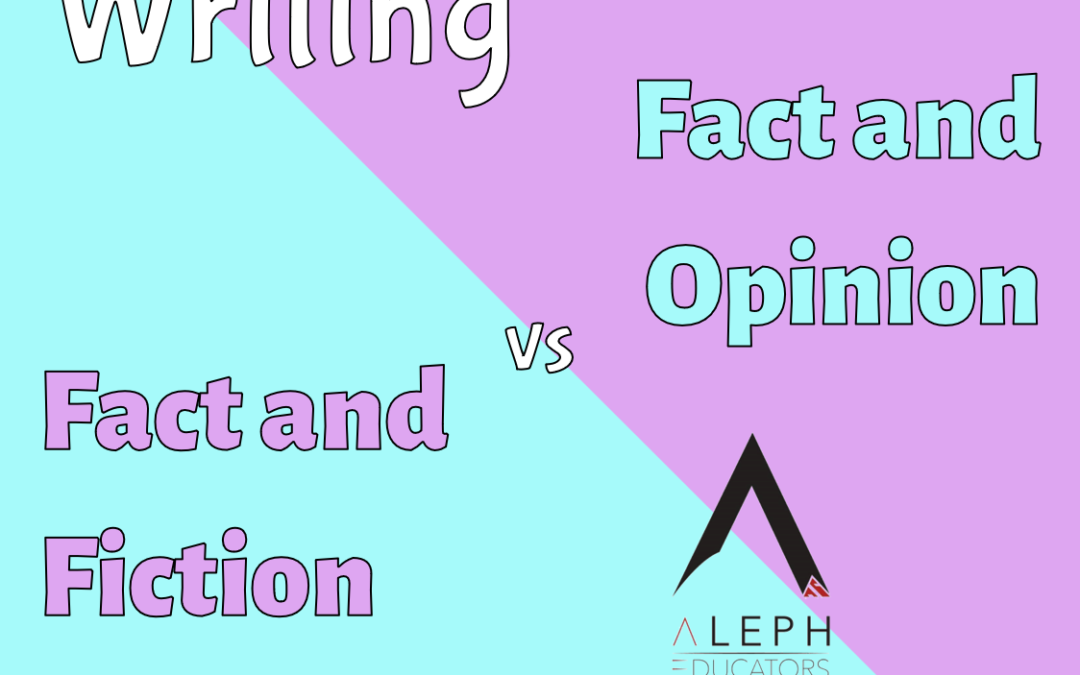When writing reports, we stick to the facts.
So, how can we report on something that we have never experienced?
Let’s look at the following topic.
Write a report on a family field trip to a historic site in Trinidad and Tobago.
What if you cannot recall going to such a place? How would you write the report? You would probably have to use your imagination and make up a place.
How about this topic?
Write a report on a hurricane that you and your family experienced.
Have you ever experienced one? If not, maybe you’ve learnt about hurricanes in science class, seen the devastation it causes on the news, or even seen it in a movie. Yet again, you would have to get creative to write this report.
Here is where you need to understand the difference between fact and fiction vs fact and opinion.
Fact and Fiction
Fact: Something that is true, non-fiction
Fiction: Something that is made-up
Think of the comprehension passages in your practice tests. Some are FICTION and some are NON-FICTION. Non-fiction usually means it is true.
Look at some examples of fiction and non-fiction comprehension passages. Ask your parent or teacher to go through it with you and explain the differences.
Fact and Opinion
Fact: A statement that can be proven to be true. It can be proven or disproven.
Opinion: One’s thoughts or feelings about something. It cannot be proven or disproven.
You must not include opinion statements in your reports. Only factual statements are used. A factual statement does not have to be true. It only has to be proven or disproven. Look at the following example.
Humans breathe in hydrogen.
Is this true? NO, humans breathe in oxygen.
Is this a factual statement? YES! This is a factual statement. This can be disproven.
Using Fiction in Reports
Can our reports be fictitious? Yes! Once we stick to the task and use only factual statements. Let’s go back to the topic about hurricanes above.
You did not experience a hurricane but you wrote the following:
The winds blew off my neighbour’s roof.
Would this be acceptable even though it truly did not happen? Yes, because it is a factual statement. It is a statement that can be proven true or false.
What about this statement?
The terrifying winds blew off my neighbour’s roof.
The word terrifying should not be used in report writing. This is an opinion and it cannot be proven to be true or false.
Your report does not have to be boring. You can add details to your report and still use factual statements. Remember factual statements vs opinion statements are different from fact vs fiction.
Exercise 1
Think of one of your favourite bed time stories. Can you turn that story into a report? Let’s use the story of Little Red Riding Hood. How would you present the fictitious story as a report? Use the story below.
One day, Little Red Riding Hood’s mother said to her, “Take this basket of goodies to your grandma’s cottage, but don’t talk to strangers on the way!” Promising not to, Little Red Riding Hood skipped off. On her way she met the Big Bad Wolf who asked, “Where are you going, little girl?” “To my grandma’s, Mr. Wolf!” she answered.
The Big Bad Wolf then ran to her grandmother’s cottage much before Little Red Riding Hood, and knocked on the door. When Grandma opened the door, he locked her up in the cupboard. The wicked wolf then wore Grandma’s clothes and lay on her bed, waiting for Little Red Riding Hood.
When Little Red Riding Hood reached the cottage, she entered and went to Grandma’s bedside. “My! What big eyes you have, Grandma!” she said in surprise. “All the better to see you with, my dear!” replied the wolf. “My! What big ears you have, Grandma!” said Little Red Riding Hood. “All the better to hear you with, my dear!” said the wolf. “What big teeth you have, Grandma!” said Little Red Riding Hood. “All the better to eat you with!” growled the wolf pouncing on her.
Little Red Riding Hood screamed and the woodcutters in the forest came running to the cottage. They beat the Big Bad Wolf and rescued Grandma from the cupboard. Grandma hugged Little Red Riding Hood with joy. The Big Bad Wolf ran away never to be seen again. Little Red Riding Hood had learnt her lesson and never spoke to strangers ever again.
Exercise 2
Look at the sample report in Volume 94 of the Newsday SEA Study Series published on Monday 7th October, 2019.
Identify the differences between the narrative sample and the report sample. Both are based on something that occured during a meeting of the Superhero Association. You can refer to our table Narrative vs Report to help you.
This report is purely fictitious. It is not the type of topic you would normally see in the SEA examination. However, it should help you understand that your report can be fictitious yet only contain factual statements.


Let’s Help You Succeed!
Join our mailing list to get updates and tutorials straight to your inbox.
Your success is just one click away!
You have Successfully Subscribed!